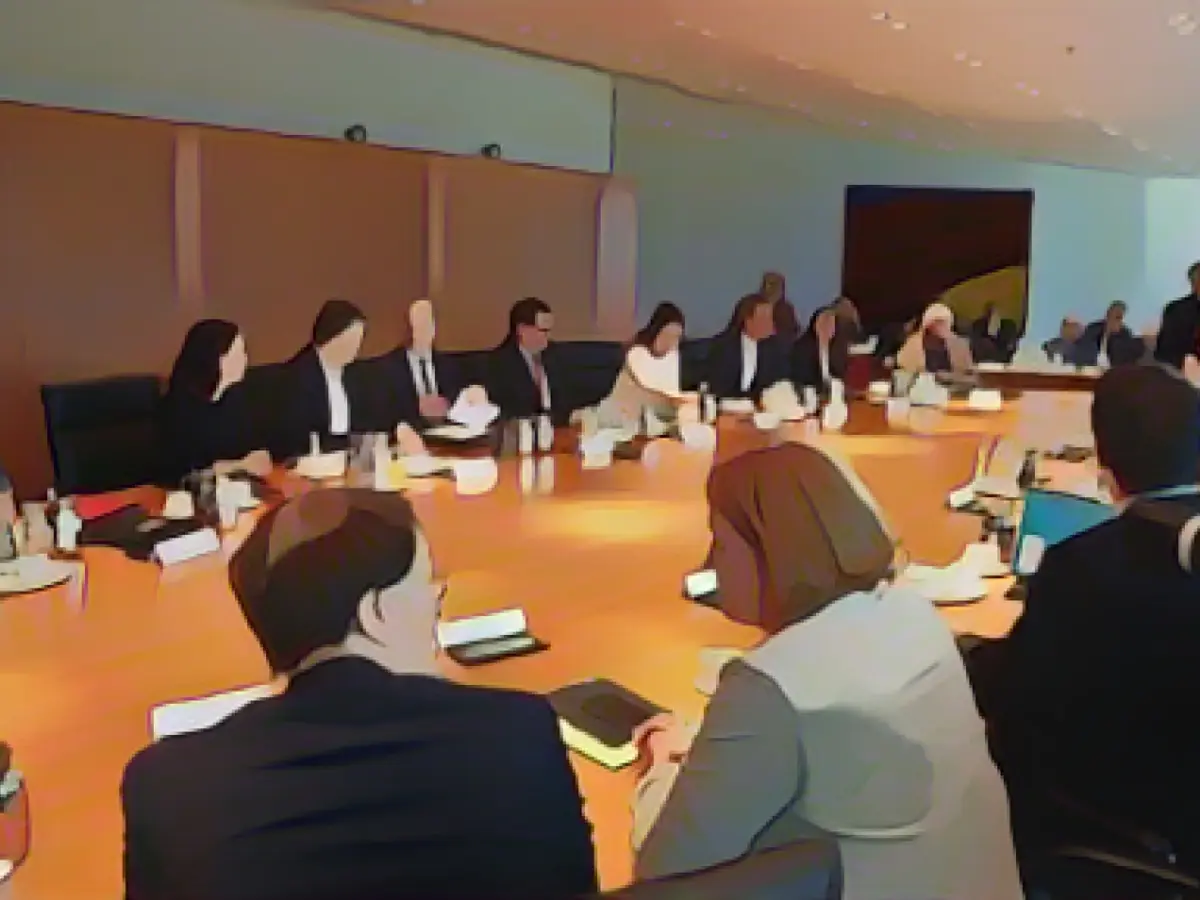"Painful cuts": Draft budget 2024 passes federal cabinet
Hebestreit spoke of "painful cuts" that the federal government would now have to make. "But there is no other way," he added. The coalition leaders had tried to negotiate "as minimally invasive as possible and as socially acceptable as possible". How exactly the savings targets would be implemented would be left to the individual ministries. "Everything else will emerge in the coming weeks."
On Tuesday, the federal government announced details of the planned cuts. They are intended to help close the billion-euro hole in the budget for the coming year. According to the federal government, a decision on the budget by the Bundestag is planned for the end of January 2024. The Bundesrat could follow suit on February 2. Until then, provisional budget management applies.
The CDU/CSU sharply criticized the coalition's budget policy. The draft budget for 2024 is a "mix of savings and increased taxes and levies", which is "nothing more than a whitewash at the expense of taxpayers", said Christian Haase, budget policy spokesperson for the CDU/CSU parliamentary group in the Bundestag, to the AFP news agency.
"Today's cabinet meeting is a pure pre-Christmas PR stunt by the traffic light," Haase added. "It is intended to suggest to citizens that the budget crisis has been resolved and that a relief package is under the Christmas tree - the opposite is the case." The Union budget minister accused Federal Finance Minister Christian Lindner(FDP) of "systematic budget trickery". Haase spoke of "rotten deals at the expense of the working population and rural areas".
One of the items to be cut concerns international aid payments, which are to be reduced by a total of 800 million euros, according to the information provided. Around 380 million euros in savings are to be achieved by cutting the budget of the Federal Ministry of Transport. The statutory pension insurance scheme is to receive 600 million euros less in federal subsidies in the coming year.
Savings are also to be made in the defense sector. The Bundeswehr is to finance some of its weapons purchases not via the regular budget, but via the special Bundeswehr fund; this concerns the weapons that the Bundeswehr has to buy because it has handed over weapons from its own stocks to Ukraine.
A spokesperson for the Federal Ministry of Defense described this as a "painful cut for the special fund". The "one-off regulation planned for 2024" is "just about acceptable".
The largest savings item relates to expenditure from the Climate and Transformation Fund, which will be reduced by 12.7 billion euros. The CO2 levy on heating oil, gas and fuel will rise from 40 cents per tonne of CO2 to 45 cents at the turn of the year. The air traffic tax on airline tickets is to be increased.
The controversial abolition of subsidies for farmers is to take place - such as the motor vehicle tax for agricultural vehicles and the abolition of tax concessions for agricultural diesel. Together, this is expected to bring in around 920 million euros.
A ruling by the Federal Constitutional Court in mid-November caused a double-digit billion euro hole in the budget for 2024. Following this, Federal Chancellor Olaf Scholz (SPD), Vice Chancellor Robert Habeck (Greens) and Finance Minister Christian Lindner (FDP) held intensive discussions in an attempt to find a solution. They finally announced an agreement last Wednesday. This contains numerous measures that have now passed through the federal cabinet.
Read also:
- This will change in December
- Attacks on ships in the Red Sea: shipping companies avoid important trade route
- Houthi rebels want to launch further attacks despite international coalition
- USA forms military coalition against Houthi attacks on ships in the Red Sea
- Steffen Hebestreit, referring to the "painful cuts" in the draft budget 2024, stated that they are necessary despite their impact.
- The Federal Government's draft budget 2024 includes various economic measures, some of which involve "painful cuts."
- Christian Lindner, as a member of the Federal Government, is involved in implementing the "painful cuts" outlined in the draft budget 2024.
- The FDP, led by Christian Lindner, has faced criticism for its role in the "painful cuts" to the budget, particularly from the CDU/CSU parliamentary group.
- The CDU/CSU criticized the draft budget 2024, describing it as a mix of "savings and increased taxes and levies", deeming it a "whitewash at the expense of taxpayers."
- The Budget Committee of the Bundestag is expected to discuss and potentially approve the controversial "painful cuts" in the draft budget 2024 towards the end of January 2024.
- Berlin will see significant "incisions" in its budget as a result of the "painful cuts", affecting various sectors and ministries, including the Federal Ministry of Transport.
- The Federal Council, after the approval of the Bundestag, will follow suit, allowing the final adoption of the "painful cuts" outlined in the draft budget 2024.
- By 2024, various "painful cuts" will have been implemented, leading to savings in sectors like international aid, defense, and agricultural subsidies, but also impacting household income and environmental programs.
Source: www.stern.de







